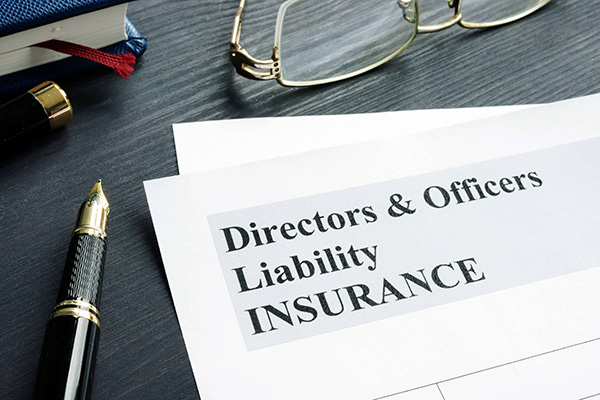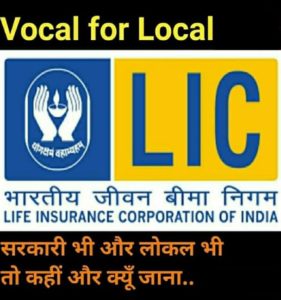
Directors & Officers (D&O) Liability Insurance is a specialized type of insurance designed to protect the personal assets of company directors and officers from legal actions that arise from their decisions and actions while managing the company. It covers the costs associated with defending claims made against them, as well as any damages or settlements they may be required to pay. This type of insurance is essential for protecting individuals in leadership positions who may be held personally liable for decisions made while acting on behalf of the company.
Key Features of Directors & Officers Liability Insurance:
- Coverage for Legal Defense Costs:
- D&O insurance provides coverage for the legal costs and expenses incurred in defending against claims, including hiring lawyers and paying for court fees.
- These legal costs can be substantial, especially in complex cases, and D&O insurance ensures that directors and officers are not financially burdened by the cost of their defense.
- Coverage for Claims and Settlements:
- The policy covers settlements or damages awarded in the event of a lawsuit or legal claim against directors and officers.
- If a director or officer is found to be legally responsible for wrongful acts (such as mismanagement, breach of duty, or errors in decision-making), the policy will cover the compensation the company or individual may need to pay to the plaintiffs.
- Protection for Personal Assets:
- D&O insurance is designed to protect the personal assets of directors and officers, such as their savings, homes, or personal investments, in case they are sued for actions they take while performing their duties.
- Claims Brought by Various Parties:
- D&O insurance typically covers claims brought by multiple parties, including shareholders, employees, competitors, customers, or regulatory bodies (such as the Securities and Exchange Commission in the U.S.).
- The claims could relate to issues such as breach of fiduciary duty, fraud, misrepresentation, failure to comply with laws or regulations, or corporate governance failures.
- Coverage for the Company (Entity Coverage):
- Some D&O policies offer entity coverage, which provides protection for the company itself if it is named as a co-defendant in a lawsuit. This helps cover the company’s legal costs, settlements, or fines if it’s found liable for actions related to the directors’ or officers’ decisions.
- Employment Practices Liability:
- Some D&O policies also include coverage for employment practices liability (EPL), which addresses claims related to wrongful employment practices such as harassment, discrimination, wrongful termination, or other employee-related issues.
What Does D&O Liability Insurance Cover?
D&O insurance typically covers the following types of claims:
- Breach of Fiduciary Duty:
- Directors and officers are legally obligated to act in the best interest of the company and its shareholders. If they breach this duty, whether intentionally or unintentionally, they could be held liable. D&O insurance covers claims arising from such breaches.
- Mismanagement or Failure to Follow Regulations:
- If directors and officers fail to comply with regulatory requirements (e.g., corporate governance laws, tax regulations, or environmental standards), they could be held liable. D&O insurance helps cover the resulting legal costs and settlements.
- Errors and Omissions (E&O):
- If a director or officer makes an error in judgment or provides incorrect advice that leads to financial losses, a claim may be filed against them. D&O insurance covers defense and settlement costs in such cases.
- Misrepresentation or Fraud:
- Allegations of misrepresentation or fraud can arise if a director or officer is accused of providing false or misleading information to stakeholders, investors, or the public. This is a common area of concern for D&O insurers, as fraud or dishonesty could have severe financial consequences.
- Shareholder Actions:
- Shareholders may file derivative suits if they believe the company’s directors or officers have made decisions that are detrimental to their interests. D&O insurance helps protect the individuals involved from personal liability.
- Securities Claims:
- Directors and officers can be held liable for violations of securities laws, such as failing to disclose material information or engaging in insider trading. D&O insurance may cover legal expenses related to securities claims, including class-action lawsuits filed by shareholders.
- Wrongful Termination or Discrimination:
- Employment-related claims, such as wrongful termination, discrimination, or retaliation, can also be covered under D&O insurance, depending on the policy’s terms and conditions.
What is Not Covered Under D&O Insurance?
While D&O liability insurance offers robust protection, there are some exclusions to be aware of:
- Intentional Fraud or Criminal Acts:
- D&O insurance does not cover claims related to intentional criminal acts, fraud, or dishonesty committed by the directors or officers. If the company’s leadership engages in illegal activity, the policy won’t cover the damages or fines associated with those acts.
- Fines and Penalties:
- Most D&O policies do not cover fines or penalties imposed by regulatory bodies (e.g., government agencies or securities regulators). While legal defense costs are covered, the payment of fines or punitive damages is usually excluded.
- Personal Liabilities:
- D&O insurance does not cover personal liabilities that arise outside the scope of the director’s or officer’s role within the company. For instance, if a director faces a personal lawsuit unrelated to their company duties, the policy would not cover it.
- Claims from the Company Itself:
- D&O insurance typically does not cover claims made by the company against its own directors and officers, as the purpose of the insurance is to protect the individual from external claims, not internal disputes.
- Bankruptcy Claims:
- If the company goes bankrupt and directors or officers are sued by creditors or other parties, some D&O policies may exclude claims related to bankruptcy or insolvency.
Who Needs Directors & Officers Liability Insurance?
- Public and Private Companies:
- Both public and private companies, regardless of their size, can benefit from D&O insurance. Public companies often face higher risks due to scrutiny from regulators, investors, and the media, while private companies may also face risks as they grow and attract external investors.
- Non-Profit Organizations:
- Non-profit organizations, such as charities, educational institutions, and NGOs, should also consider D&O insurance to protect their directors and officers from personal liability.
- Startups and Small Businesses:
- While large corporations typically carry D&O insurance, small businesses and startups, especially those with investors or board members, should consider having it. Investors may require it as a condition of their involvement.
Factors Affecting D&O Insurance Premiums:
Several factors determine the cost of D&O insurance premiums, including:
- Size of the Company: Larger companies with more assets and complex operations generally face higher premiums due to the increased risk of claims.
- Industry: Certain industries, such as finance, healthcare, and technology, face a higher risk of litigation and regulatory scrutiny, which can increase D&O premiums.
- Claims History: Companies with a history of lawsuits or claims against their directors and officers may face higher premiums due to the perceived higher risk.
- Geographic Location: Companies operating in regions with more litigation or regulatory activity may have higher premiums.
- Policy Limits: The amount of coverage and the policy limits chosen (the maximum amount the insurance company will pay for claims) will affect the premium.
- Company Governance and Risk Management Practices: Companies with strong governance practices and risk management protocols may qualify for lower premiums, as they present a lower risk of claims.


